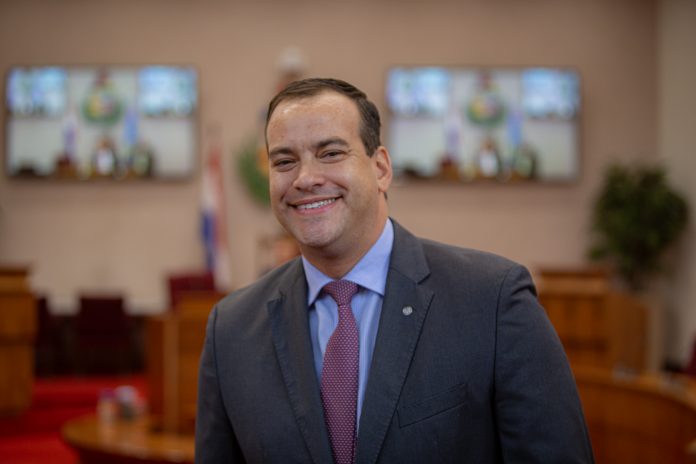During the presentation of the budget for 2023 in Parliament, minister of Economic Affairs, Mr. Geoffrey Wever elaborated on the effect of development of international prices on the level of prices for products and services in Aruba.
An increase in prices for services and products, or inflation, is a current topic every day because of its impact on our wallet. The great dependence of Aruba on imports of products means that we import also the increases in international prices. This means that our products become more expensive, resulting in a reduction in purchasing power, according to Wever.
In the latest projections for the development of the Aruban economy, the Department of Economic Affairs expects an inflation of 5.6% in 2022 and an inflation of 5.4% in 2023. This projection is based on a deep analysis of the latest national and international developments, carried out by experts from the department.
During the discussion on the 2023 budget in Parliament, minister Geoffrey Wever gave thorough explanation on the economic impact of the introduction of a BTW – Value Added Tax, VAT – compared to an increase in the rate of BBO – Tax on company turnover. Different studies carried out on request of the Government of Aruba showed that increasing the BBO with 1.0 percent will have an impact of 1.4 percent on inflation, compared to the impact of BTW, which would be between 5.3 percent to a “worst case scenario” of 9.9 percent – with a VAT rate of 6% and 14%.
According to the minister, studies showed that the impact on our prices for products and services depend partially on the decision of business owners: if they remove the BBO first and based on this price (without BBO) apply the new rate. If they do not remove the BBO first and just apply the new rate, it is expected that this will result in a much higher inflation.
International development of price and the space of business owners will have an influence on the decision if the price for consumers will be adjusted. In a scenario in which the business owners do not remove the BBO first, known as the worst case scenario, the impact of BTW on inflation would be 9.9%. In the scenario where business owners do remove the BBO first, the impact of BTW on inflation would be 5.3%. This is the range in theory, but the reality would be somewhere between that 5.3% and 9.9%. The expectation is that some business owners will remove the BBO first while others will not.
According to Wever, reality remains that the government of Aruba has expenses – including interest on debt – that need to be covered. Here the recommendation came to increase BBO with 1%. Calculations were made and these indicate that increasing BBO with 1% has a much lower inflationary effect of only 1.4% additional.
Wever said that based on these studies and the current situation, the government made the responsible and careful decision and stands behind this.




















